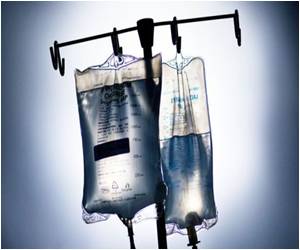In contrast to most drugs that are chemically synthesized, most biologics are complex mixtures that are not easily identified or characterized.

TOP INSIGHT
Biological products often represent the cutting-edge of biomedical research and, in time, may offer the most effective means to treat a variety of medical illnesses as well as cut health care spending.
"Biologics account for the fastest-growing segment of prescription drug spending, but biosimilars have the potential to help slow some of the increase," said Andrew Mulcahy, lead author of the study and a policy researcher at RAND, a nonprofit research organization. "However, there remains many important industry, regulatory and policy decisions to be made that will influence whether such savings are realized."
Biologics are complex, protein-based drugs manufactured in living systems and include insulin, monoclonal antibodies to block inflammation in rheumatoid arthritis, and a range of drugs to treat cancer, multiple sclerosis and other serious diseases.
While biologics are important treatments for many conditions, they often are expensive and patient copays for the treatments can be several thousand dollars per year. While 1 percent to 2 percent of the nation's population is treated with a biologic each year, the drugs accounted for 38 percent of prescription drug spending in 2015. In addition, biologics accounted for 70 percent of the growth in prescription drug spending in the U.S. between 2010 and 2015.
Biosimilars are very similar to already approved "reference" biologics in terms of potency, safety and efficacy, but manufactured by different companies. Biosimilars can be approved for marketing by the federal Food and Drug Administration after the manufacturer of the reference biologic enjoys several years of patent and exclusivity protection.
RAND researchers developed their estimate of savings from biosimilars by examining other studies that have examined the issue, reviewing the sales history of more than 100 biologic drugs and examining the brief experience of the one biosimilar drug that has been marketed in the U.S.
While expected to produce less-dramatic savings than an earlier generation of less-complex generic drugs, the introduction of biosimilars into the U.S. marketplace is expected to increase competition and drive down prices, resulting in savings for patients, health care payers and taxpayers. Lower costs also could improve access to biologic drugs, which could lead to higher spending overall unless the treatments helped lower hospitalizations or other costs.
"The actual savings hinge on the evolving competitive landscape in the pharmaceutical industry, regulatory decisions, and insurer efforts to promote biosimilar uptake through payment rates and other strategies," Mulcahy said. "Future research will be needed as more biosimilars come to market to see whether savings are realized and who benefits from any reductions in spending."
Source-Eurekalert
 MEDINDIA
MEDINDIA




 Email
Email






